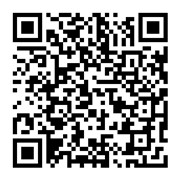初中英语必看!超简单if句型用法大揭秘,让你轻松应对各种场景!
1. 基本形式:
- 原形:if + 主语 + 动词(如:if you are happy, I will go to the park)
- 疑问句:if + 主语 + 动词(如:if you are happy, will you go to the park?)
- 陈述句:if + 主语 + 动词(如:if you are happy, I will go to the park)
2. 否定形式:
- 否定词+ if + 主语 + 动词(如:if you are not happy, I will not go to the park)
- 疑问句:否定词+ if + 主语 + 动词(如:if you are not happy, will you not go to the park?)
- 陈述句:否定词+ if + 主语 + 动词(如:if you are not happy, I will not go to the park)
3. 条件句:
- 条件从句:if + 主语 + 动词(如:if it rains, we will stay at home)
- 条件从句的否定形式:if not + 主语 + 动词(如:if it rains, we will not stay at home)
4. 强调句型:
- 强调句型通常由“it is/was + 被强调部分”构成,其中“被强调部分”位于句首。例如:“It was a great day.”(那天是一个美好的一天。)
5. 倒装句:
- 当if引导的句子需要强调条件时,可以使用倒装句式。例如:“If he were here, he would help us.”(如果他在这里,他会帮助我们。)
6. 比较级和最高级:
- 在if句型中,可以添加比较级或最高级来表示可能性或确定性。例如:“If you are happy, I will go to the park.”(如果你开心,我会去公园。)
7. 时间状语从句:
- 如果if句型后面接时间状语从句,需要使用一般现在时或一般过去时来表示将来时态。例如:“If it rains tomorrow, we will stay at home.”(如果明天下雨,我们将待在家里。)
8. 复合句:
- 在更复杂的if句型中,可以包含多个从句,形成复合句。例如:“If you are happy, I will go to the park and buy you a present.”(如果你开心,我将会去公园给你买一份礼物。)
通过学习和练习这些基本的if句型,你可以逐渐提高你的英语表达能力,无论是在日常交流还是在考试中都能更加自信地使用英语。记住,实践是提高语言技能的最佳方式,所以多说多练,不断积累经验吧!


